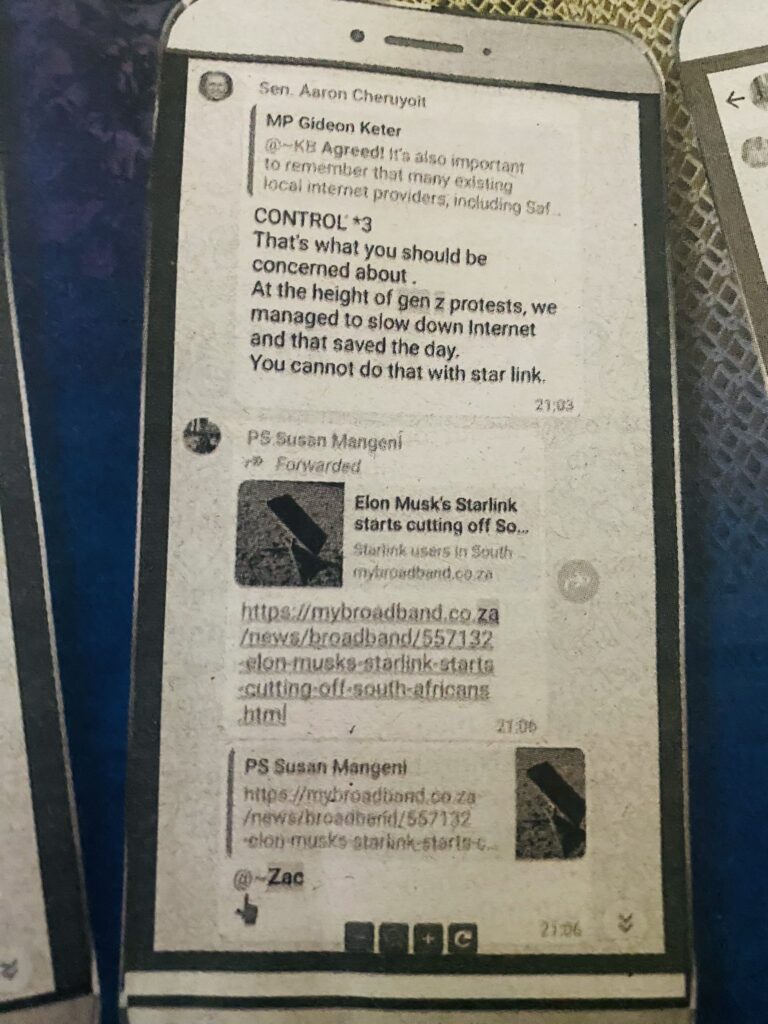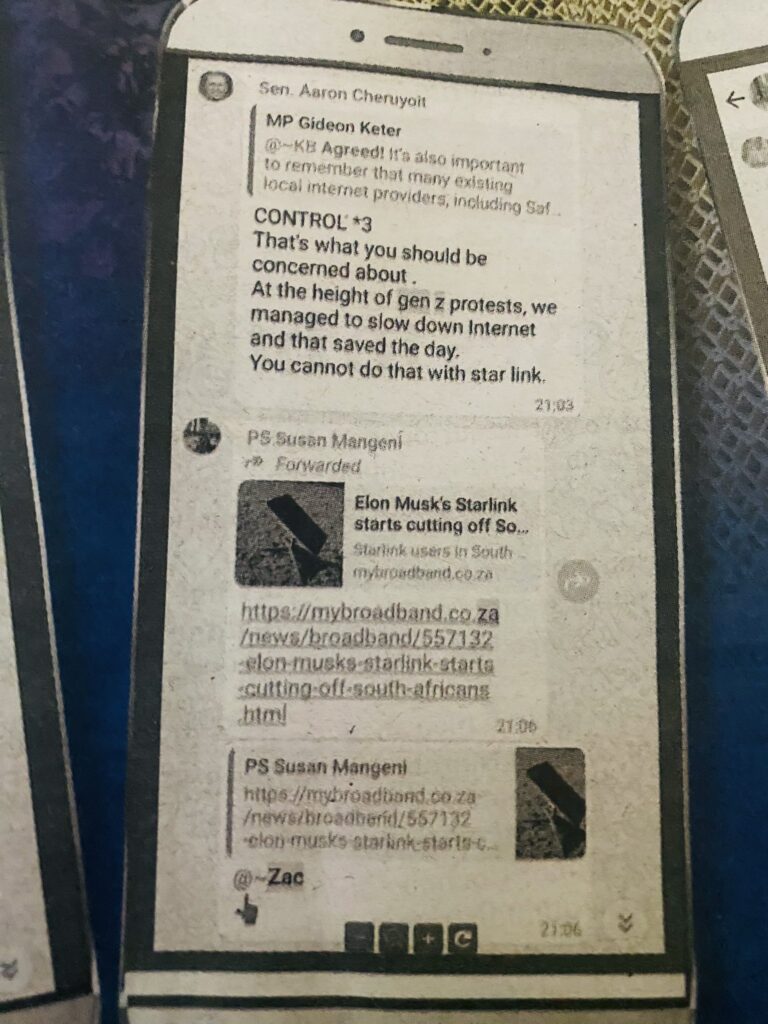Kenya is going through a tense period where protests have become part of the national conversation, with young people at the forefront demanding change. These protests, often fueled by frustrations over government decisions, have shown how critical the internet is in modern activism.
Leaked WhatsApp conversation exposed by The Standard has revealed troubling details about how authorities might be using digital controls to weaken protest movements.

The viral post shared by Propesa TV, on August 25, 2025, showed Senator Aaron Cheruiyot admitting that internet speeds were intentionally slowed down by major providers like Safaricom and Airtel during Gen Z protests.
He even claimed that the move “saved the day,” though he admitted that Starlink, Elon Musk’s satellite-based internet service, remained a challenge since it could not be easily restricted.
The leak also brought Susan Mang’eni, the Principal Secretary for the State Department of Micro, Small, and Medium Enterprises Development, into the spotlight. In the conversations, she was seen forwarding articles about Starlink cutting off users in South Africa, which many believe was her way of suggesting similar approaches for Kenya.

This has created a perception that Mang’eni is actively supporting measures to curb digital freedoms during unrest, targeting platforms that give citizens alternatives to traditional internet providers.
Her participation in these chats raises questions about whether her push for economic growth and digital transformation can be trusted when she appears willing to back restrictions that silence the very youth and small businesses she often claims to support.
This is not the first time Kenyans have noticed suspicious internet slowdowns during politically sensitive moments. During the Finance Bill protests in June 2024, internet users across the country complained of sluggish connections just as crowds were storming parliament. While telecom companies blamed under sea cable.
Rights groups like Access Now condemned those disruptions, describing them as violations of free speech and assembly.
Mang’eni has often spoken publicly about the economic impact of protests, estimating that Kenya loses around Ksh3 billion daily when demonstrations disrupt business. She has criticized vandalism and urged young people to protect small traders who suffer during chaos. However, her involvement in discussions about slowing down internet access points to a contradiction.
While she promotes digital projects and entrepreneurship under her MSME docket, she seems willing to support tactics that undermine the same digital freedoms entrepreneurs depend on. For small businesses that rely on online transactions, mobile money, and social media marketing, even a few hours of slow internet means lost customers and broken trust.
Rural communities, already struggling with limited connectivity, face even greater isolation when such controls are applied.
The broader implications go beyond economics. Kenya’s digital economy is growing fast and contributes nearly 10% to the GDP, but trust in the system is eroded when leaders appear to weaponize technology against citizens.
Civil society groups have already taken action, with lawsuits filed to prevent future internet disruptions. The High Court has previously ruled against shutdowns during national events, yet the leaked chats suggest that some officials are determined to find loopholes. International organizations, including the UN, continue to warn that these tactics amount to human rights violations.





















Add Comment